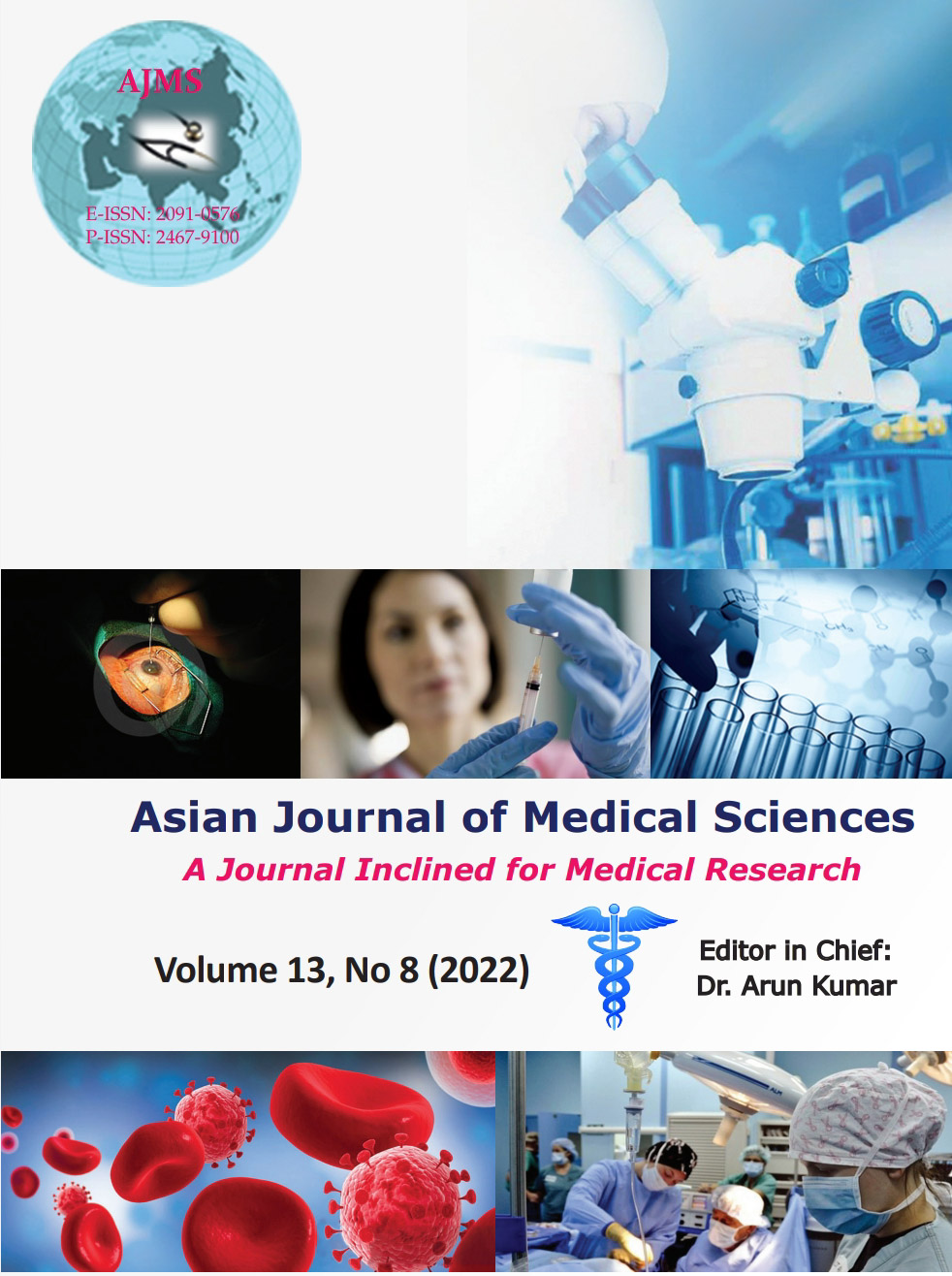Association of insertion/deletion polymorphism of angiotensin converting enzyme gene with metabolic components of polycystic ovary syndrome
Keywords:
Angiotensin-converting enzyme; Hyper-androgenism; Insertion/deletion polymorphism; Polycystic ovary syndrome; Renin angiotensin systemAbstract
Background: Polycystic ovary syndrome (PCOS) has taken the prime position as an endocrine disease in women of reproductive age and is estimated to affect 2.2–22.5% worldwide and in Indian women it ranges from 9% to 12%. The primary defects that cause PCOS still remains unknown. A lot of genetic factors not excluding polymorphisms and mutations of multiple genes have been linked with PCOS, exact mechanisms which might be the cause of PCOS are yet unknown. Angiotensin converting enzyme (ACE) and its yields are related with angiogenesis of ovarian epithelium, restoration of meiosis, steroidogenesis, and follicular growth.
Aims and Objectives: The present study was aimed to establish the association of ACE insertion/deletion (I/D) polymorphism in PCOS patients and to assess the influence of this polymorphism on the metabolic components of PCOS.
Materials and Methods: Genomic DNA was extracted from blood obtained from 100 patients with PCOS and 100 healthy controls following ethical guidelines. DNA was amplified by polymerase chain reaction (PCR) using I/D distinct allele primers. PCR products were assessed after being exposed to gel electrophoresis. Results were analyzed in respect to biochemical parameters.
Results: The allelic frequency and genotypic distribution of the ACE gene polymorphism is associated with PCOS in women. The concentrations of testosterones as well as luteinizing hormone/follicle stimulating hormone ratio among the distinct genotypes were significantly different. The presence of “D” allele in a population more likely to be associated with formation of polycystic ovary and hyperandrogenism was observed.
Conclusion: The data suggest that ACE I/D polymorphism and PCOS pathology are unassociated. However, aggravation of clinical symptoms of PCOS can be linked to the steroidogenesis which, in turn, is associated with the polymorphism.
Downloads
Downloads
Published
How to Cite
Issue
Section
License
Copyright (c) 2022 Asian Journal of Medical Sciences

This work is licensed under a Creative Commons Attribution-NonCommercial 4.0 International License.
Authors who publish with this journal agree to the following terms:
- The journal holds copyright and publishes the work under a Creative Commons CC-BY-NC license that permits use, distribution and reprduction in any medium, provided the original work is properly cited and is not used for commercial purposes. The journal should be recognised as the original publisher of this work.
- Authors are able to enter into separate, additional contractual arrangements for the non-exclusive distribution of the journal's published version of the work (e.g., post it to an institutional repository or publish it in a book), with an acknowledgement of its initial publication in this journal.
- Authors are permitted and encouraged to post their work online (e.g., in institutional repositories or on their website) prior to and during the submission process, as it can lead to productive exchanges, as well as earlier and greater citation of published work (See The Effect of Open Access).




